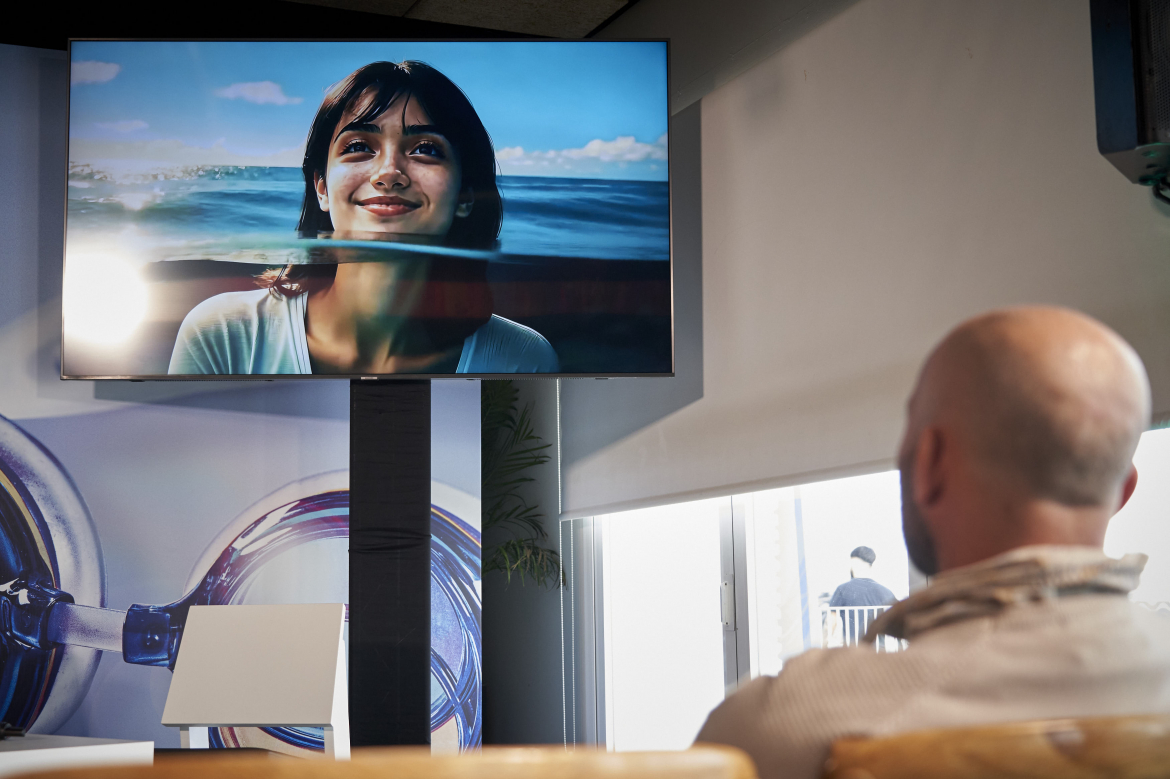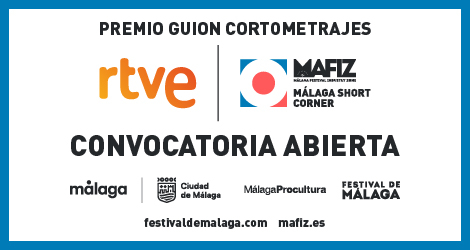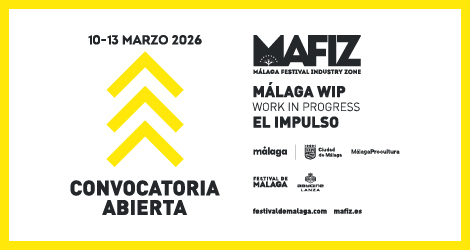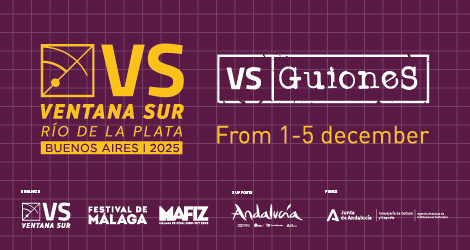
The transformation of Brand Entertainment Marketing and new audiovisual tools
The landscape is transforming with new developments in neuro-research, digital strategies and the promotion of young talent
Branding activities began with the presentation "From paper to armchair. Neuro-research techniques to measure and anticipate the impact of audiovisual content", an innovative and practical session that allowed attendees to understand how the emotions and reactions of the audience can be analysed before the launch of content. This is a tool from IPG Mediabrands Entertainment to detect unconscious reactions and extract data to improve decision making in film editing, content marketing generation and strategic media planning.
Mapi Merchante, the company's strategy director, said: "Today, it's not enough to create eye-catching content, it's essential to understand how the audience actually perceives and experiences it. That's why we apply neuro-research techniques.
Nacho Cámara said that they apply their results to the content they create for brands "to ensure that they achieve their objective in terms of image, values and effectiveness".
Carmen Roman, project manager at Sociograph, spoke about Marketing Science "to know the effectiveness of content complementing traditional methodology and neuroscience to know its impact before launching a project".
One of the most important activities of the day was the closing of the Impromptu AI presented by Hilario Abad, Javier Prada and Javier de la Chica. A group of content creators and a filmmaker presented a short film made with artificial intelligence. It has been a challenge for them as they have been challenged to do it in one day. "It's been a crazy process. It is a horror story in which everything has been designed with AI except the script from which they started.
The featured round table was on "Artificial Intelligence in the creative industries" to drive innovation in the media industry. Jesus Nacimiento Navarro, Head of Digital and Streaming Platforms at Atresmedia emphasised the improvements that implementing these new technologies will bring. "We have been using artificial intelligence for a long time since we started in 2017 with the first internal development applying this tool for user improvement and the ones we are carrying out now are related to facilitating accessibility for everyone."
Miguel Escassi, director of institutional relations and public policy at Google Spain, explained that his company "is very optimistic about the development of artificial intelligence. It is exciting because it opens doors that until recently were insurmountable in many areas and allows us to face different challenges." He also wanted to make it clear that "we do not see it as a substitute for human talent, but as a tool that amplifies our potential".
"Our approach is quite humanistic because we want to empower our creatives to produce more and better things," says Felipe Jiménez, Chief Digital Officer at Banijay. "We want these new tools to help us produce better scripts, but not to do it for us as we are a creative company. They also help us to save time in some processes like going from a script to a rundown, we try to free up tedious work with different tools."
In contrast to these large companies, Brais Moure, software developer and content creator, says that he uses these tools "in any process in my day-to-day life to be faster and more efficient. It saves a lot of time that I can spend on many other really creative activities."
In collaboration with ECAM, and as part of a new Brand Entertainment Marketing day, a workshop entitled "Social networks as allies of independent cinema" was held. In this session they explored how digital platforms have emerged as a key resource for the promotion and visibility of all kinds of independent film projects. The talk addressed aspects such as budget, launch strategy and other essential factors for the success of these productions in the digital ecosystem.
For Pilar Toro, CMO of Filmin, social networks and independent films are essential allies in a world where their platform does not have such great economic possibilities. "We are all in networks and advertising here bothers us less than in other environments. Our advantage is that we work with content and can "sell ourselves" in an entertaining way.
Sunde J. Sastre, founding partner of CØLLAGE and co-director of the first Master's in Entertainment Marketing at ECAM explains that by working "with such creative entertainment products, they are already a story in themselves with their own storytelling. It is a universe with which it is very easy to generate a conversation.
Likewise, the first edition of "Young Branded Pitching", organised by CØLLAGE in collaboration with PUBLICIS REBELLION, brought together the young Spanish and Latin American talents of Hack Malaga. Participants presented their branding and entertainment projects in a professional environment, showcasing fresh and innovative ideas for the sector. This space sought to foster creativity and provide opportunities for new generations of content creators.
Continuing with the masterclasses and demos, a workshop on volumetric capture in the creation of new narratives in visual entertainment was organised. In terms of Gaming and immersive experiences, attendees participated in a showcase of narrative video games. Finally, the industry was able to participate in sectoral advice and activities presented by Europa Creativa MEDIA Andalucía.
The last concert of La Villa del Mar was the performance by Amajazz. Dani Fernández also took the stage to answer questions about his documentary 'Todo cambia', presented at the Festival.
Tomorrow's agenda
On the next day of activities, the Second Brand Entertainment marketing day will take centre stage with a debate on new avenues for financing: Brands, Funds and Venture Capital as well as a talk on the classic Golf Cup and the keys to building a brand from entertainment.
The complete schedule can be found on the website.










